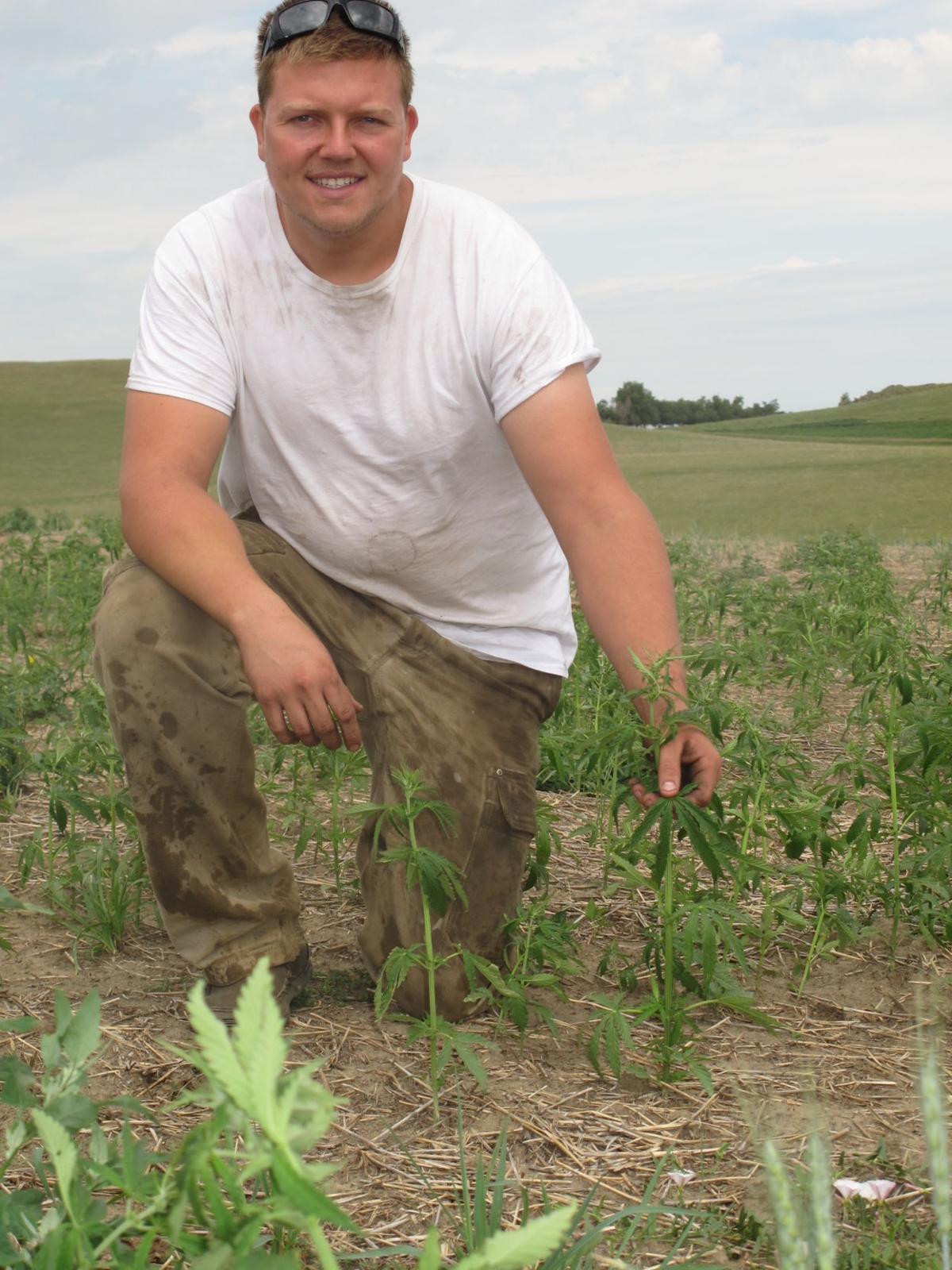Source: bismarcktribune.com

RURAL ELGIN — Clarence Laub figures there’s no right or wrong outcome to an experiment, just a learning curve.
That’s the view he’s taking of a 10-acre hemp plot near the family farm south of Elgin that’s part of a statewide pilot program to see if the crop has potential for North Dakota growers.
Right now, it doesn’t look like much: Emerging growth is uneven and fairly spotty across the field. He planted June 1, and for most of the month the seeds received less than an inch of rain.
A good shot of precipitation recently made a substantial difference, and Laub is starting to see tender new plants coming in, along with patches where the plants are a foot tall or better. Even as he walked the field Friday, a good rain was coming in from the west, so he remained hopeful that he’ll have enough hemp seed to process after a small harvest.
“The first time you will have failures, but you have to be able to go through it and learn from it. It’s trial and error,” he said.
Laub is rethinking his planting technique. He plans to bring in a no-till drill next year and get more depth consistency in the range of three-fourths of an inch. He put this crop in with a hoe drill and thinks that might have placed the seed a little too deep for best germination.
“I’m hoping I could get a more uniform stand,” he said.
Laub is lining it up so if he has a decent harvest, he’ll order a cold press and run the seed through it to separate the oil from the meal, as each element has a marketable use. That, too, will be an experimental part of the process.
The state Agriculture Department is sponsoring the hemp pilot program, procuring seed from Canadian growers, transporting it to Bismarck and redistributing it to seven growers who seeded slightly over 70 acres combined.
Rachel Seifert-Spilde, plant protection specialist for the department, organized the program and has been in contact with participating growers in LaMoure, Grant, Foster and Benson counties, along with a small plot at the Langdon-based Research Institute.
“In LaMoure County it looks fantastic, more than 4 feet tall. In the western half, where there’s been less rain, it isn’t progressing as well,” Seifert-Spilde said. “There were varied planting days, but it all helps with the baseline data.”
She said the LaMoure growers are planning to host a field day July 20, so anyone interested can have a look.
Laub said he’s had local farmers ask him how it’s going, but he hasn’t had folks pull into the driveway to check it out, which he half expected would happen.
“I haven’t seen that, but if people want to see it, this is intended so people can learn from it,” he said.
He plans to give it another go next year. Seifert-Spilde said she’s hoping the hemp pilot can continue, but it all depends on the department’s budget, which will be under some pressure in this oil-depressed revenue situation.
“We’re intending to do it another year, but we are not certain,” she said.
Hemp is still under a federal restriction because of its relationship to the marijuana plant, and it’s illegal for anyone to grow except under the research auspices.
Laub said no one can go into his field unless they’ve cleared a background check, and he’s restricted from selling or keeping unprocessed seed. That’s not a problem, because for him it’s all about learning best practices and passing them along.
“I’m looking at the agronomy aspect, and I just want to help other farmers get into this. There’s a lot of opportunity with it,” he said.
No comments:
Post a Comment